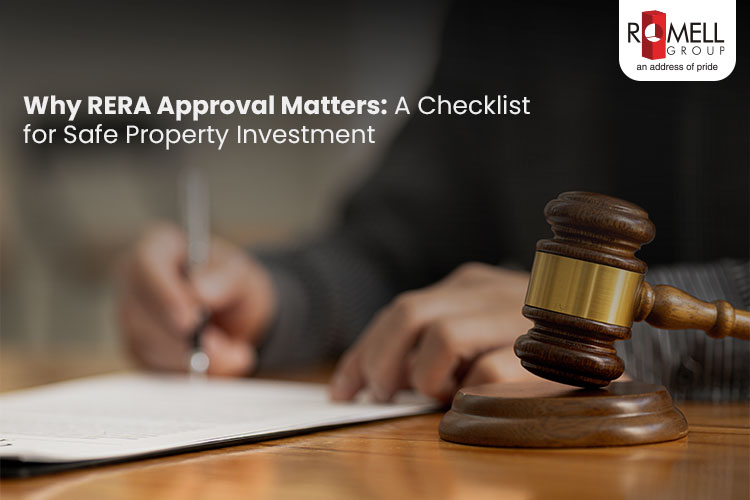Legal Tips for NRIs Investing in Property in Mumbai
Introduction
Mumbai’s real estate market is a magnet for Non-Resident Indians (NRIs) looking to invest back home. But beyond the emotional pull, knowing the right legal steps can make or break your venture.
1. Why Mumbai Appeals to NRI Investors
Currency Appreciation Advantage
As the Indian Rupee often trades lower against stronger global currencies, NRIs enjoy enhanced purchasing power when investing in Mumbai, stretching their dollar or pound further. This favorable rate dynamic can significantly boost returns if you plan to exit later.
Robust Rental Yields & Infrastructure Boost
Mumbai offers strong rental yields, reported at around 4.15% in Q1 2024, up from 3.50% in 2019, making it a great source of steady income. Coupled with infrastructure upgrades (metros, expressways, and business hubs), demand continues to grow.
Stable Regulatory Environment
MahaRERA brings transparency and accountability to new developments, while RBI and FEMA regulations clearly outline what NRIs can and can’t do. This makes investing from abroad much less risky.
2. RBI Guidelines NRI Investors Must Know
Types of Properties Allowed
NRIs can legally invest in both residential and commercial properties in India. 2.2. Payment Modes: NRE, NRO, FCNR
All payments should flow through Indian banking channels using NRE, NRO, or FCNR accounts. Cash or informal routes are not allowed.
Bank Loans for NRIs in India
NRIs are eligible for home loans from Indian financial institutions, which can help bridge down payments or finance purchases.
3. FEMA Rules & Repatriation of Funds
Sale Proceeds & Rental Income
FEMA allows NRIs to repatriate property sale proceeds or rental income, subject to certain limits.
Power of Attorney (PoA)
When you can’t be present in India, a PoA allows trusted individuals to act on your behalf, making paperwork and legal formalities much smoother.
4. Taxation Essentials for NRIs
Rental Income Taxation & Deductions
Rental income earned in India is taxable. Thankfully, you can claim deductions for municipal taxes, interest on home loans, and standard deductions, reducing your taxable liability.
Capital Gains Tax & Double Tax Avoidance
If you sell the property, capital gains tax applies. Thanks to Double Taxation Avoidance Agreements (DTAAs), tax paid in India can be credited in your country of residence, preventing double taxation.
5. Trusted Developers & Due Diligence
Why Romell Group is NRI-Friendly Developer in Mumbai
Romell Group emphasizes transparency with RBI/FEMA compliance, legal support for document handling, and trusted processes tailored to NRIs.
Check RERA Registration & Track Record
Always verify that a project is MahaRERA-registered and assess delivery timelines and quality. Romell Group projects like Andheri, Borivali, and Goregaon have credentials and past performance.
Legal Document Verification
Insist on a clean title, no encumbrances, approved plans, and clear compliance with local regulations. Romell Group offers legal verification support as part of their NRI services.
6. Using Power of Attorney for Remote Transactions
With a PoA, you can authorize someone in India to manage everything from booking, signing documents to receiving sale proceeds. Make sure it’s a general or specific PoA and notarized for full legal validity.
7. Managing Property from Abroad
Property Management Services
Hire local property managers to handle tenant sourcing, rent collection, and routine maintenance: this is especially useful if you’re overseas.
Banking & Upkeep Coordination
Maintain active NRE/NRO accounts, and automate tax payments and utility bills. Align with local agents or the Romell Group CRM team, who help with the registration formalities and overall possession process.
8. Summary: Legal Checklist for NRI Property Buyers In Mumbai, India
| 1 | Verify project RERA registration and developer track record |
| 2 | Use formal banking channels (NRE/NRO/FCNR) for payment |
| 3 | Understand RBI and FEMA repatriation limits for income and sale proceeds |
| 4 | Use PoA for remote legal actions |
| 5 | Account for rental and capital gains taxation, leverage DTAA |
| 6 | Hire property management if staying abroad |
| 7 | Crosscheck all legal documents, clear title, approved plans, no encumbrance |
FAQs
- Can NRIs buy any type of property in Mumbai, India?
Yes, NRIs are allowed to invest in both residential and commercial properties, per RBI guidelines. - How should NRIs make payments for property purchases in Mumbai, India?
All payments must be routed through Indian banks using NRE, NRO, or FCNR accounts: avoid cash or informal methods. - Is RERA registration important when choosing a project?
Absolutely. A MahaRERA-registered project ensures transparency and legal compliance. Most developers, like Romell Group, highlight this in their offerings. - Can rental income be repatriated overseas?
Yes, under FEMA guidelines, rental income and sale proceeds can be repatriated within prescribed limits. - How are NRIs taxed on rental income or capital gains?
Rental income is taxable in India but eligible for deductions. Capital gains tax applies on sale, and DTAA helps avoid double taxation.
Closing Thoughts
Investing in Mumbai real estate as an NRI can be lucrative and emotionally rewarding, provided you follow the right legal path. Stick to RBI and FEMA guidelines, partner with trusted developers like Romell Group, verify legal credentials, and streamline your finances through proper channels. It’s all about being savvy, compliant, and prepared to enjoy the long-term benefits of owning a slice of India.








